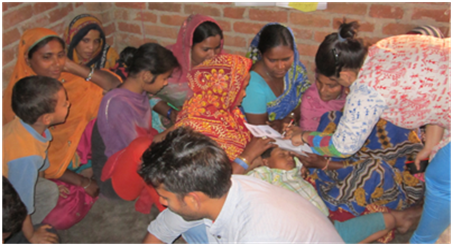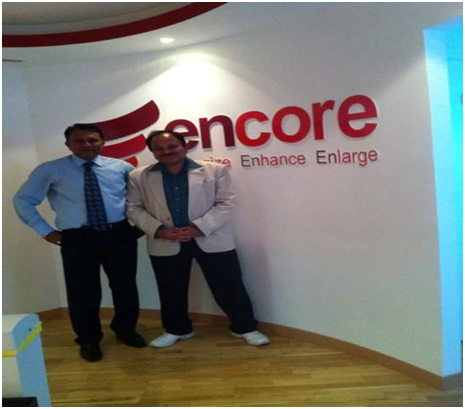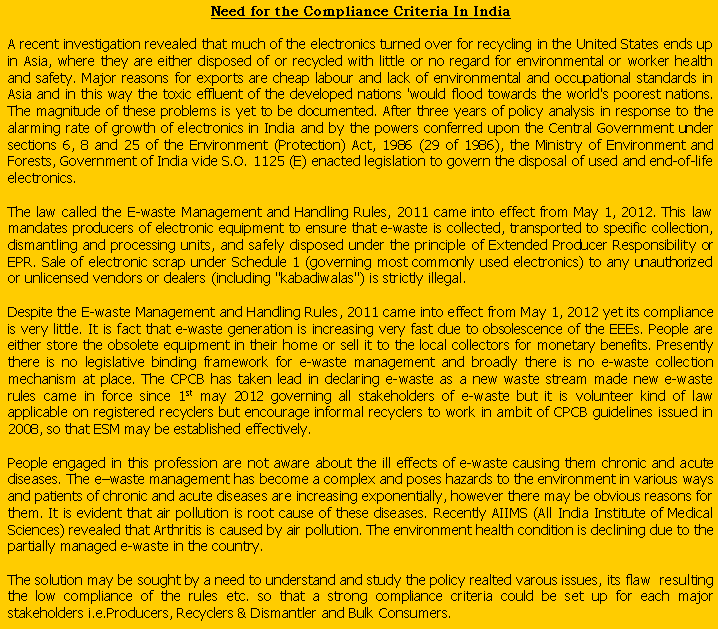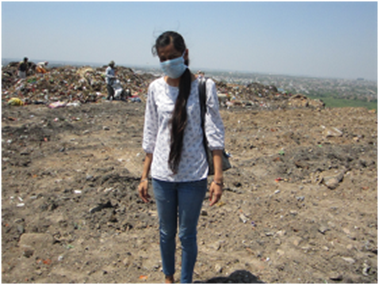
|
SYCOM’s ‘GREEN LETTER’ |
|
…... A Quarterly e-Newsletter January-March 2015 |
|
Volume 1: Issue 3 |

|
Sycom TOFT PUG Audit is an environmental audit which aims to verify and validate best wilderness accommodation practices. Till date around 70 audits have been conducted in 20 different National Parks Tiger reserves and other eco-sensitive zones. From January to March 2015, eight audits were carried out. Two new zones have been included under the Pug footprint i.e. Rajaji National Park (Uttarakhand) and Valparai (Tamil Nadu). Only about two years old Rajaji National Park was notified as a new tiger reserve Valparai in Tamil Nadu is famous for its unique natural environment and wide range of flora/fauna, apart from the sprawling team estates and coffees plantations. |
|
PUG Green Team Meet was held on Sycom’s office to discuss about the present status of PUG Audits and the way forward. As the PUG Audit criteria is being revised, the transition into new version after getting International accreditation for the Standards, discussions mainly centred around the plan & strategy in the past transition period. Meeting between TOFT Administration and Green team was also arranged to discuss various issues such as business promotion, inclusion of New Geographical Areas, Feedback, Suggestions etc. Mr. Julian Mathews, TOFT Chairman and Mr. Pradeep Dadlani, Head of the Green Team had a prolonged discussion about the future prospects of the PUG Audit in India, and its modified improved internationally recognized certification to be launched soon. |
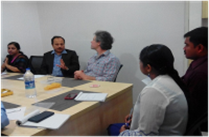
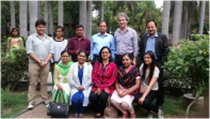
|
Research on Odour Management on Landfill Site |
|
Green Team attended a seminar conducted by TOFT at the IHC, Delhi where several DMC Members, Tour Operators and media persons were also invited. Mr. Kadshal from Page Traffic delivered a lecture on Web promotion and advertisement, apart from a presentation by Mr. Julian Mathews, Chairman , TOFT. |
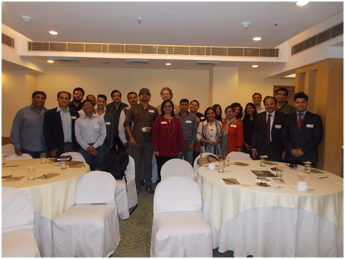
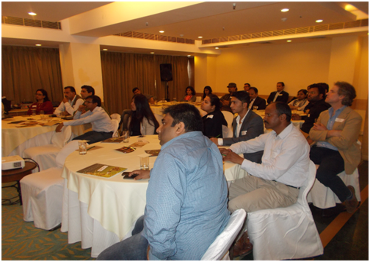
|
TOFT Seminar – The Invitation to collaborate |
|
TOFT Admin and PUG Green Team Meeting |
|
TOFT Admin and Head of Green Team met with the Secretary of Tourism Shri Panwar to discuss about the common goal of ushering in Sustainable and Responsible Tourism Practices in India. He approved the efforts of TOFT and also showed a keen desire for it to play more proactive role in promoting good practices for Sustainable Eco-Tourism. |
|
Sycom Projects Consultants Private Limited is continuously investigating the source and solution of the odour on the landfill site. Under this initiative our Interns visited the Bhalswa and Okhla landfill Sites of Delhi. They conducted a survey with structured questionnaire about the perception of the odour among the workers and nearby residents of the landfill sites. Several complaints noticed by the team like Dust, smoke near the site. Nearby residents are affected by noise problem during the time of trucks arrivals. Odour problem becomes more stringent during the summer and rainy seasons. Simple respiratory diseases, gastric and eye ailments are predominant and commonly placed. Sycom team also visited Gwalior landfill site which was closed 2years back. Although, it is a closed plant, still noxious smokes could be seen coming out from the site.
Visit to Jindal Ecopolis Waste to Energy Plant: A colony named Haji colony, which is 100 metres away from the plant, is continuously exposed to smokes, dusts of the trucks and dusts. Leachate from the compost plant is continuously percolating inside the locality and polluting the ground water of that region. Complaints of skin problems, respiratory ailments and even stomach cancer have been noted by our team, during their visit to the plant. |
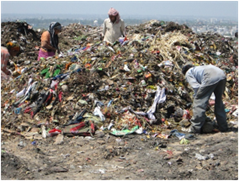
|
Sycom Projects Consultants Pvt. Ltd has signed a Memorandum of Understanding with M/s New Earth Bio Remedies Private Limited, who has their product for Odour removal. Sycom is planning a pilot test of their products for odour removal in some public dhalaos/Secondary Collection Centres |
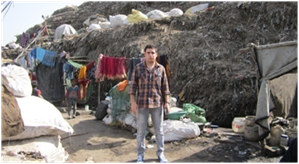
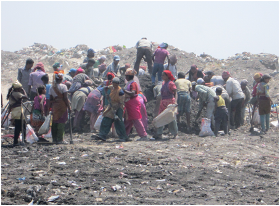
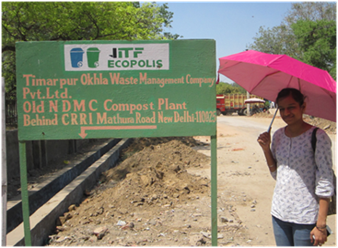
|
A working group has been constituted by DEITY with representation from GIZ, TERI, MOEF, CPCB, MAIT with the objective of working out a compliance criteria for E-waste management rules for three major stake holders – Dismantlers & recyclers, Bulk consumers and Producers. Our director Mr. Pradeep Dadlani who is working with this group, has already submitted the draft compliance criteria after interaction with different stakeholders, while considering the existing Indian regulatory framework as well as the International best practices. A background note on need for Compliance Criteria in the Indian E-Waste management sector is detailed below. |
|
Sycom has been taken the task of monitoring and evaluation of a UNDP funded project under its Small Grant programme. The project is being implemented by the NGO Chintan and aims at working out a sustainable model focusing on livelihoods of rag pickers involved in collection of E-waste in Delhi and the NCR areas. Under this project, our team visited and participated in the programmes held at Sani chowk slum area to supervise and monitor the e-waste training programme. Quarterly evaluation reports are being submitted as part of the M&E activity. |
|
Our team had a video chat with Ms. Sarah O’Brien, Director of Global Community Development, Green Electronics Council to comprehend the EPEAT standards and its feasibility and expansion plans in India. India is the 43rd country in which EPEAT registration and verification services are now available to help purchasers select products that reduce their environmental impact |
|
Sycom is in a process of signing a MoU with Dubai based consulting company M/s Encore Investment Management Inc. Our director Mr. Pradeep Dadlani visited their office at Dubai and discussed the future business prospects and the areas of mutual interest where the two organizations could work jointly |
|
Sycom team attended an International Conference on Solid Waste Management based on the theme “Sunya-Towards Zero Waste in South Asia. Apart from this, our interns and executives attended various workshops and seminars under their part of the training programme. Interns also visited Pragati Maidan to attend the IETF where an exhibition on Solid Waste Management was held part from attending other training programmes/conferences on themes such as Climate Change, Renewable Energy, E-Waste, Green Buildings etc. |
